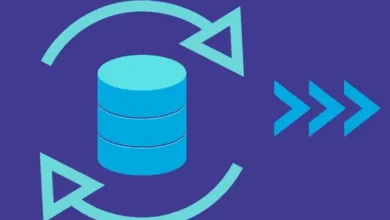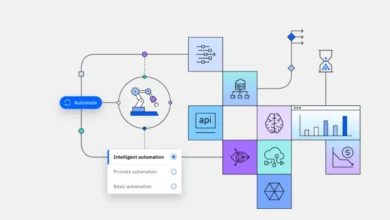AI Recruiting Trends: What Every HR Professional Should Know

Human Resources (HR) professionals continually seek innovative strategies to streamline recruitment processes and attract top-tier talent. With Artificial Intelligence advancements, the recruitment landscape has undergone significant transformations. AI has become an indispensable tool for HR professionals, enhancing candidate experience and improving hiring efficiency. So, explore five key AI recruiting trends that every HR professional should be aware of.
Contents
1. AI-Powered Candidate Screening
Gone are the days of manually sifting through resumes to identify potential candidates. Applicant tracking software has revolutionized the hiring process by automating the initial screening phase. AI-powered screening tools have revolutionized the hiring process by automating the initial screening phase. These tools utilize sophisticated machine learning algorithms to analyze resumes, assess the qualifications, and identify the best fit for the job. By helping reduce the time spent on manual screening, HR professionals can allocate their efforts more effectively, engaging with qualified candidates and forging meaningful connections.
2. Chatbot-Assisted Recruitment
Candidates expect immediate responses and personalized interactions throughout the process. Chatbot-assisted recruitment platforms have emerged as a solution to meet these expectations. These AI-powered chatbots engage with appliers in real time, answering questions, scheduling interviews, and providing updates on application status. By delivering a seamless and interactive experience, chatbots enhance candidate satisfaction and streamline the overall process for HR professionals.
3. Predictive Analytics for Talent Acquisition
Predictive analytics has come up as a game-changer in talent acquisition, enabling HR professionals to make data-driven decisions throughout the recruitment lifecycle. By understanding historical data and identifying patterns, predictive analytics tools forecast future hiring needs, predict success, and optimize recruitment strategies. From pointing out the most effective sourcing channels to predicting attrition rates, these insights empower HR professionals to address recruitment challenges and drive strategic hiring initiatives proactively.
4. Bias Detection and Mitigation
Bias in recruitment processes poses a significant challenge to fostering diversity and inclusion within organizations. Traditional hiring methods often inadvertently perpetuate biases, resulting in homogenous teams and missed opportunities for innovation and growth. However, the emergence of AI-powered tools presents a promising solution to detect and mitigate bias throughout the hiring process. These AI tools leverage advanced algorithms to analyze various aspects of the recruitment process, including language patterns, resume content, and interview interactions.
By scrutinizing job descriptions, these tools can identify and rectify gender bias, ensuring that the language used does not inadvertently discourage certain demographics from applying. This helps organizations attract a more diverse pool of candidates from the outset. Moreover, AI tools can delve into resume content to ensure fair evaluation of candidates based on their skills, experiences, and qualifications rather than extraneous factors such as name or educational background. This mitigates unconscious biases that may creep into the initial screening process, allowing recruiters to focus solely on merit and potential. During the interview phase, AI-powered tools can analyze interactions between interviewers and candidates, flagging potential bias, such as interruptions or disproportionate questioning based on demographics.
5. Candidate Relationship Management (CRM)
Building and sustaining relationships with candidates is essential for creating a positive employer brand and fostering long-term engagement. AI-powered Candidate Relationship Management (CRM) systems help HR professionals effectively manage interactions and maintain a talent pipeline. These platforms leverage AI algorithms to personalize communication, track candidate preferences, and automate follow-up tasks. By staying connected with candidates throughout their journey, HR professionals can build strong talent networks and enhance their organization’s reputation as an employer.
AI has become a game-changer in the field of recruitment, offering innovative solutions to streamline processes, improve efficiency, and enhance candidate experience. These trends are reshaping how HR professionals attract, engage, and hire top talent. By staying informed about these AI recruiting trends, HR professionals can stay ahead of the curve and incite meaningful impact within their organizations. Embracing AI technology not only accelerates the recruitment process but also enables organizations to build diverse, inclusive, and high-performing teams for the future.



